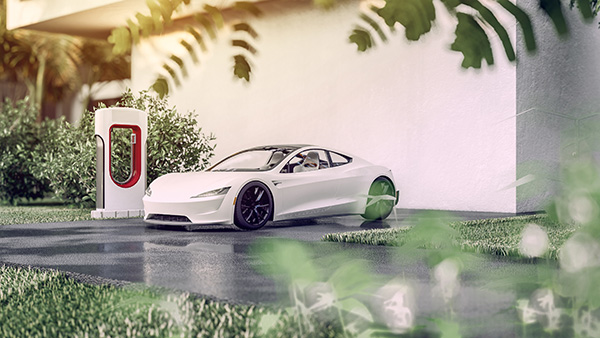
Electric vehicles (EVs) have transformed the auto industry, impacting everything from manufacturing to consumer preferences. Although EVs were once considered niche products for the environmentally conscious, they have now become mainstream. Consumers are increasingly choosing these innovative vehicles for their eco-friendly features, advanced technology, and lower operating costs. As the transition to electric power accelerates, it's important to understand how this shift is fundamentally changing the auto industry.
1. The Rise of Electric Mobility
One of the most significant impacts of EVs is the way they've changed what consumers expect from their cars. In the past, purchasing decisions were often based on brand loyalty, fuel efficiency, or horsepower. Today, consumers are looking at range, battery life, and charging options. EVs provide a modern appeal, with buyers drawn to the idea of owning cutting-edge technology while reducing their carbon footprint.
Moreover, the shift in consumer demand has pushed automakers to rethink their approach. Brands once synonymous with gasoline engines, like Ford and General Motors, are now heavily investing in electric platforms. It's no longer just Tesla leading the charge—almost every major car manufacturer is developing their version of electric cars, from affordable city commuters to luxury EVs.
2. The Development of EV Infrastructure
Another significant way electric vehicles are shaping the auto industry is through the rapid expansion of EV infrastructure. Charging stations, once rare and confined to big cities, are now being developed nationwide and globally. Governments and private companies alike are investing in fast-charging networks to support the growing number of EVs on the road.
Public infrastructure aside, automakers are also designing home charging solutions to make electric vehicle ownership more convenient. This infrastructure shift not only supports current EV users but also reassures potential buyers, making the leap from gasoline to electric much easier.
Fast-Charging Networks
Brands like Tesla pioneered fast-charging stations with their Supercharger network, but now other companies like ChargePoint and Electrify America are building networks to support all electric vehicles.
Home Charging Stations
Many automakers now offer solutions for convenient home charging, letting owners top off their batteries overnight.
With these developments, the once-daunting question of where to charge an EV is fading, and as a result, the fear of range anxiety is becoming a thing of the past.
3. Technological Innovations Leading the Charge
Electric vehicles are changing not only how cars are powered but also how they are designed and built. They are packed with advanced technology that pushes the boundaries of innovation in the automotive sector.
For example, the integration of over-the-air software updates has revolutionized vehicle maintenance and improvement. Unlike traditional cars, which require regular visits to the shop for updates or fixes, many EVs can update their software remotely, enhancing performance, navigation systems, or even the user interface with the touch of a button.
4. A Push Toward Sustainability in Manufacturing
The shift to electric vehicles goes hand-in-hand with a broader move toward sustainability in the automotive industry. Beyond just reducing emissions on the road, many automakers are reassessing their manufacturing processes to reduce the environmental impact of producing EVs.
Batteries, often seen as the most environmentally contentious part of an EV, are becoming more sustainable as manufacturers explore better ways to source and recycle materials like lithium, cobalt, and nickel. Companies like Tesla are actively working on creating more efficient battery production processes, and there are significant investments in solid-state battery technology, which could further reduce the need for raw materials.
Moreover, as EV production ramps up, automakers are setting up "gigafactories" that focus on mass-producing electric car batteries with a lower carbon footprint. Brands like Volkswagen, Ford, and BMW have also pledged to adopt renewable energy for their production lines, further pushing the auto industry toward a greener future.
5. The Economic Shift
The rise of EVs is not only reshaping the technical and environmental aspects of the auto industry but also creating a massive economic shift. As the demand for electric vehicles grows, so does the need for specialized workers with skills in battery technology, software engineering, and electrical systems.
Traditional auto mechanics are now having to adapt to a future where servicing an EV is vastly different from fixing a gasoline-powered car. The need for fewer moving parts in an EV means fewer regular maintenance issues, but the complexity of battery diagnostics and software-related repairs presents new challenges and opportunities for repair shops.
The rise of EVs is opening new markets globally. Countries that were once dependent on oil imports are now shifting toward becoming leaders in clean energy production and EV technology. China, for instance, has made massive investments in EV production, aiming to dominate the global market. Similarly, governments worldwide are offering incentives for EV adoption, making it an increasingly attractive option for consumers and businesses alike.
Worried about your EV's next check-up? Auto Rescue has certified technicians ready to provide top-tier service for all your EV maintenance needs. Visit us for a worry-free experience.